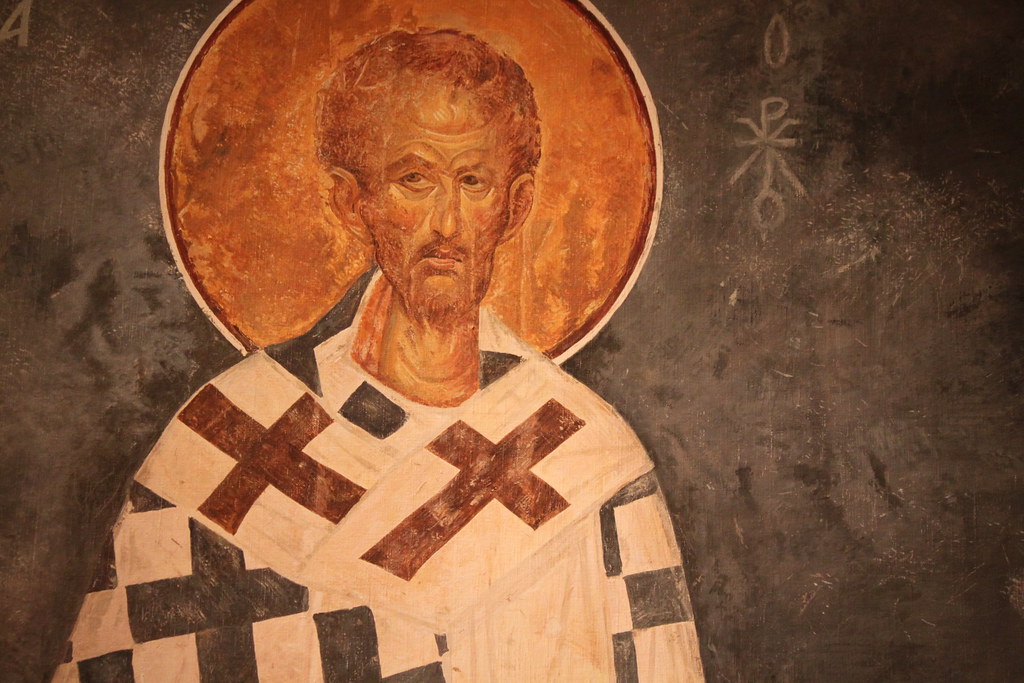But you are a chosen race, a royal priesthood, a holy nation, God’s own people, that you may declare the wonderful deeds of Him who called you out of darkness into His marvelous light.
I Peter 2:9
I Peter 2:9 makes reference to the “royal priesthood,” which is some translations is referred to as the priesthood of all believers. Some denominations use this verse to argue against a sacramental priesthood. In essence, they believe that we are all priests. This is not the case. There is one true Priest in the church and that is Christ. By baptism, we enter into His priesthood. There are a few men who enter into the sacramental priesthood, meaning that are ordained to be leaders in the church. However, everyone has a “priestly role” in the church. What does that mean? We are all called into union with Christ, first of all, through the Eucharist. The Eucharist isn’t reserved only for the ordained priests, but is imparted to all the people. We are all called into union with Christ through worship. In the Old Testament, the high priest would enter into the Holy of Holies once a year and what he would do would be unseen. Now we have visual access to the altar, we see the service, and we participate in the service. In fact, when the petitions are offered in our divine services, the clergy are merely offering a prompt, and in the response, the people are offering the prayer. Someone stands as the leader in worship, the one offering the prompts, but the people offer the responses. There is no Divine Liturgy without the people. If the Eucharist is Christ coming to us in a physical and tangible way, there is no Eucharist without laypeople.
We are all called into union with Christ through prayer. While one may go to a priest and ask him to offer a prayer, we are to pray without clergy present. We are to pray privately in our homes, ask God to bless our food, and live lives of prayer, both in church and outside of it. We are called to be philanthropic. We are called to serve others. And finally, we are called to evangelize. The Great Commission, where we are spread the Gospel to all nations, is a responsibility of all believers. We will all stand in front of God at our judgment and answer for what we did to spread the Gospel of Jesus Christ.
Throughout church history, there have been three major orders of clergy—the Bishop, the Priest and the Deacon. There have also been minor orders of clergy—including the reader, the chanter and the subdeacon. Altar boys are a relatively new addition. In centuries past, there were subdeacons that basically performed the function which today’s altar boys serve. Each parish had a few of them, and they were “ordained/tonsured” to serve in the altar and would enter into the service of the altar for the remainder of their lives. In modern times, we have boys who enter into the service of the church for a short period of their young lives and then leave the service of the altar when they go to college. Oftentimes we see a bishop tonsure the altar boys, which was an ancient tradition one had done to him before entering the service of the altar.
Readers and chanters were also minor orders of the clergy, in the sense that there would be a prayer offered over them before they began their service to the church and this service would continue throughout their lives. The chanters (psaltes) would be responsible for leading the singing of the hymns and responses. The readers (anagnostes) would read the Psalms, prayers, synaxarion and Epistles/prophecies in the divine services.
A few people will serve in the “minor orders” of the clergy, and even fewer will serve in the three major orders. However, we are all called to serve Christ. Even those who enter into the major orders of the clergy do not have their own “priesthood.” All enter into the priesthood of Christ.
The third vestment of the priest is called the zoni or belt, and is placed over the epitrahelion during the Divine Liturgy. It is not worn for other services. It serves the practical purpose of keeping the epitrahelion close to the chest of the priest or bishop so that it doesn’t interfere with the work he is doing.
This God—His way is perfect; the promise of the Lord proves true; He is a shield for all those who take refuge in Him. For Who is God, but the Lord? And Who is a rock, except our God?—The God Who girded me with strength and made my way safe. Psalm 18:30-32
All of us are part of the priesthood of Christ, with sacred duties such as prayer, worship and evangelism that are supposed to be part of every Christian life.
